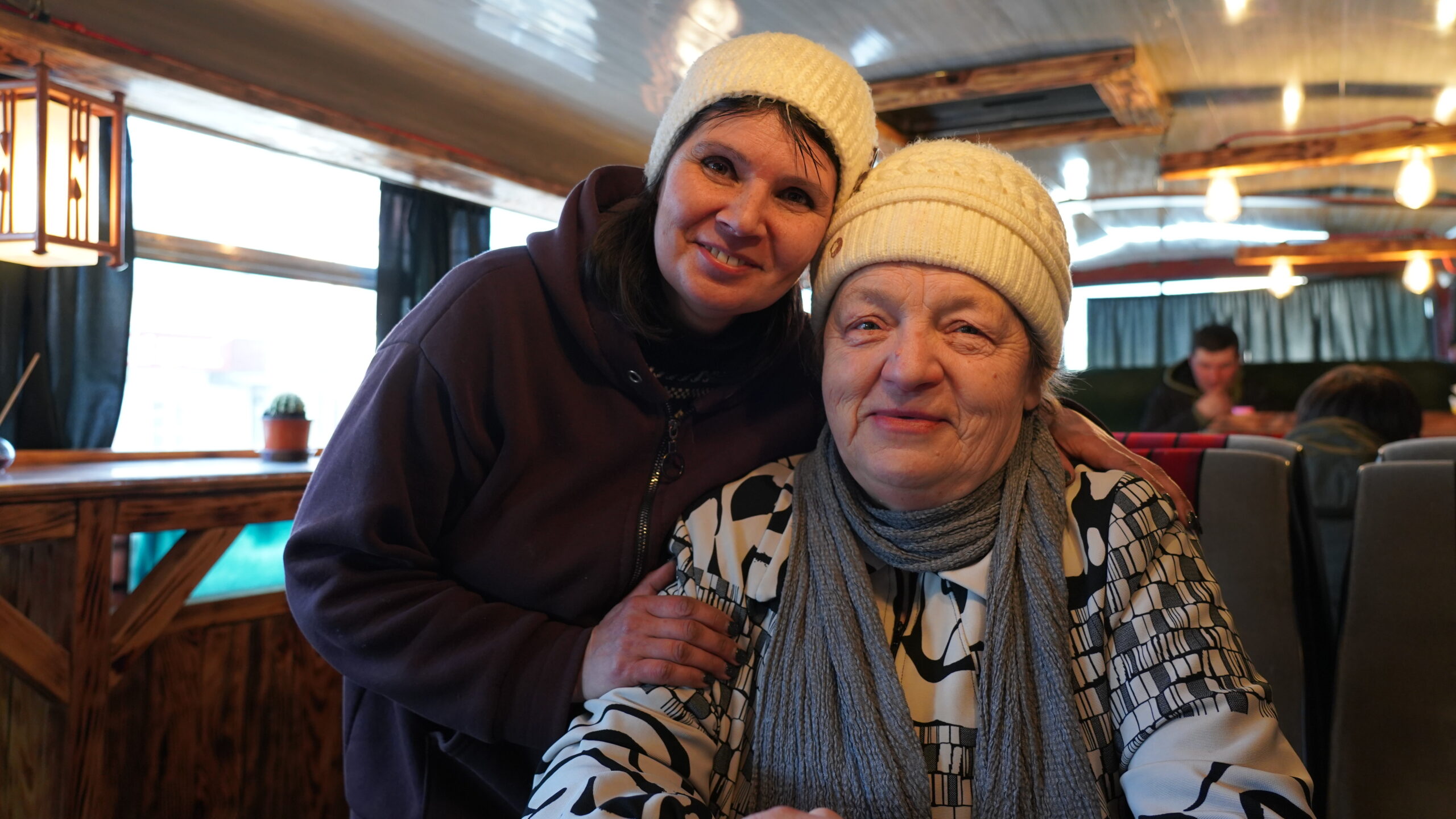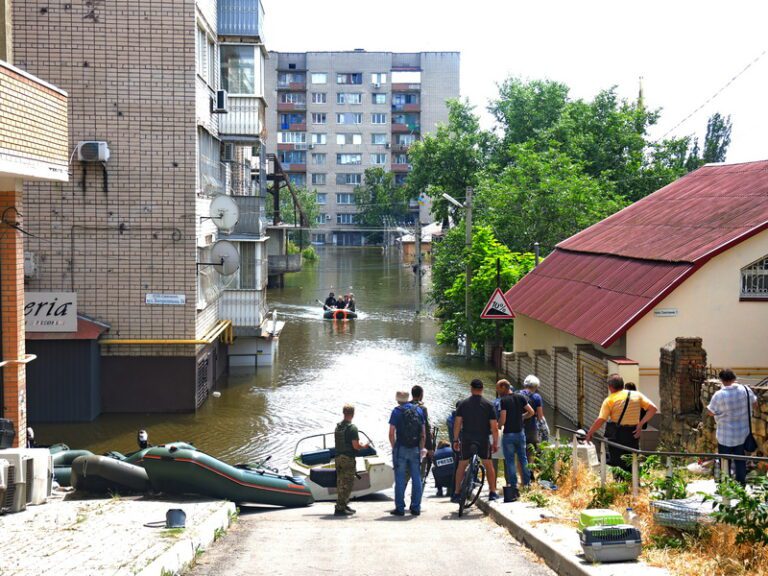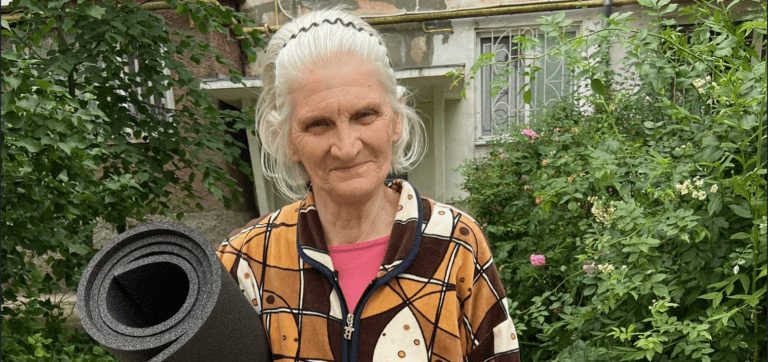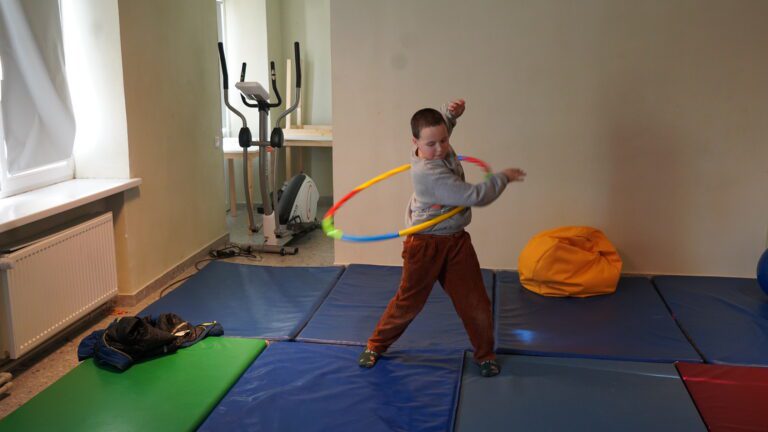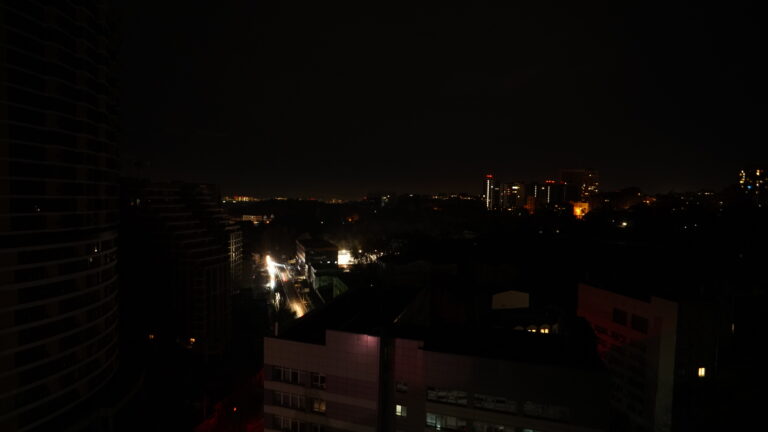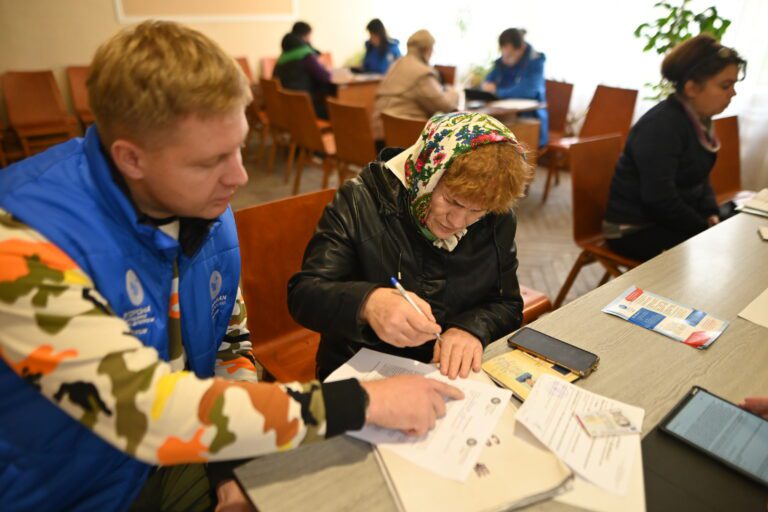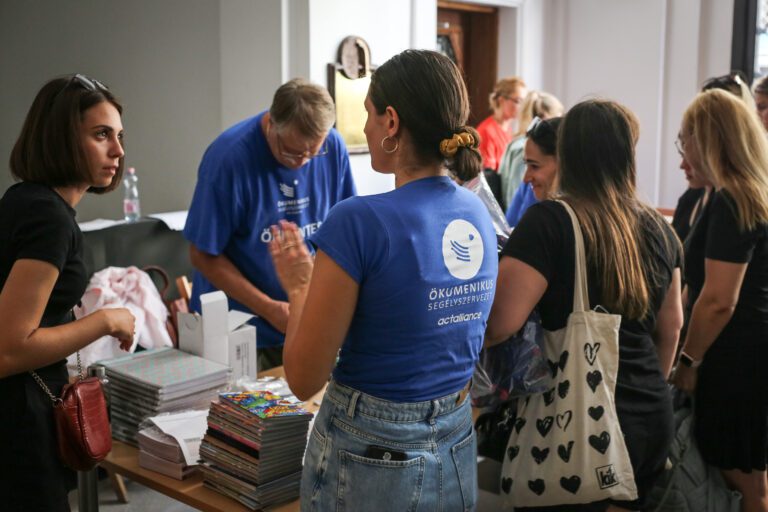Vision regained
“Oh, Angel, embrace us with your wings,
Mother of God, bless all with your compassion,
In our families, let there be love and esteem,
To friends, always pay enough attention.
Give us lasting health and contentment,
Provide us with well-being, peace and happiness,
Of our heart, make a residence of kindness.”
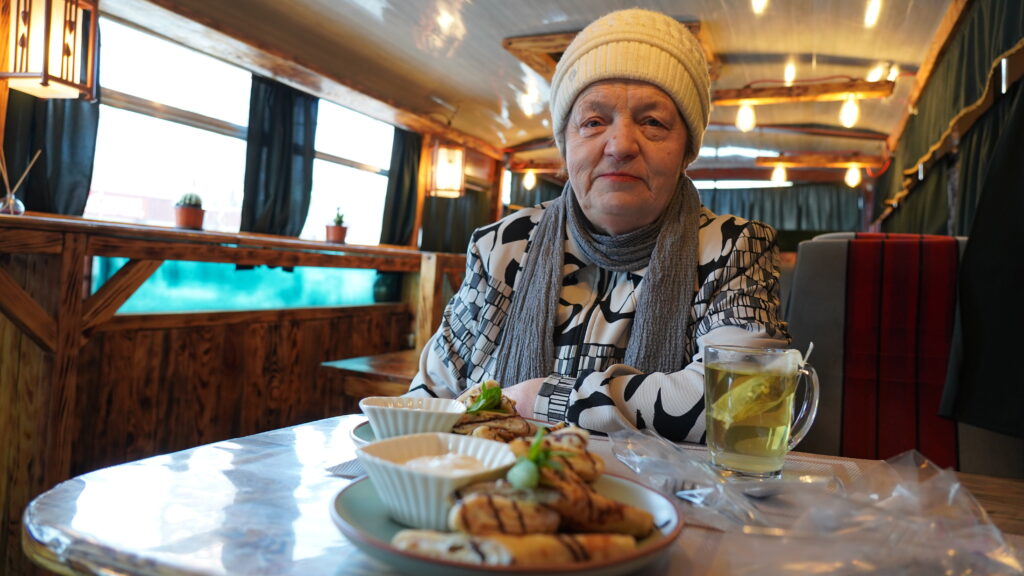

This is what Lydia recited in a cramped, cold room in the community centre of Rokytne. Her audience, the enumerators of Hungarian Interchurch Aid listened as she struggled with tears of joy gently dripping out of her blind eye. “It was a miracle you have appeared in Rokytne,” she says of the registration team of HIA’s cash assistance program sponsored by World Vision. “As if God has sent you,” she adds, keeping eye contact, now that after a month, she can see with her right eye.
Blindly into the unknown
The sixty-five-year-old woman was diagnosed with diabetes in her early twenties. The often cruel disease became a part of her life, and as she aged, the related health issues increased.
She has spent the last forty years in the riverside town of Nikopol, Dnipro region of Ukraine. The moment the Russian invading forces attacked the neighbouring Zaporizhizhia oblast, Lydia gave up her three-room apartment and, like all internally displaced, her previous life. “Eh, life is much more valuable than whatnot material belongings,” she exclaims, waving her hand resignedly.
“My sight was already getting worse then. Obviously, the horror of war did not help,” she adds.
We’ve met in the centre of Rokytne. She was wearing a dark-blue winter jacket, holding a walking stick and a plastic bag. “I arrived here the same way you see me. Nothing more. The moment bombs started falling on Zaporizhzhia, I sat in a car and in a few days, I returned to my hometown, where I hadn’t been in four decades,” she remembers.
Lydia was born and raised in Rokytne, she could find refuge in the house of her estranged brother.
She was lucky that her doctor back in Nikopol, sensing that looming darkness shrouds the future, provided her with extra doses of insulin. She had received an operation on her right eye two years ago in Kharkiv, a city northeast of Ukraine, ravaged by war just as much as the region Lydia had to flee. But with the temporary shortage of medicine in the first months of the war, her eyesight has deteriorated to severe impairment, “practically blindness,” as Lydia herself put it.
By the time HIA’s field team had arrived to Rokytne, Lydia had already spent months in obscurity.
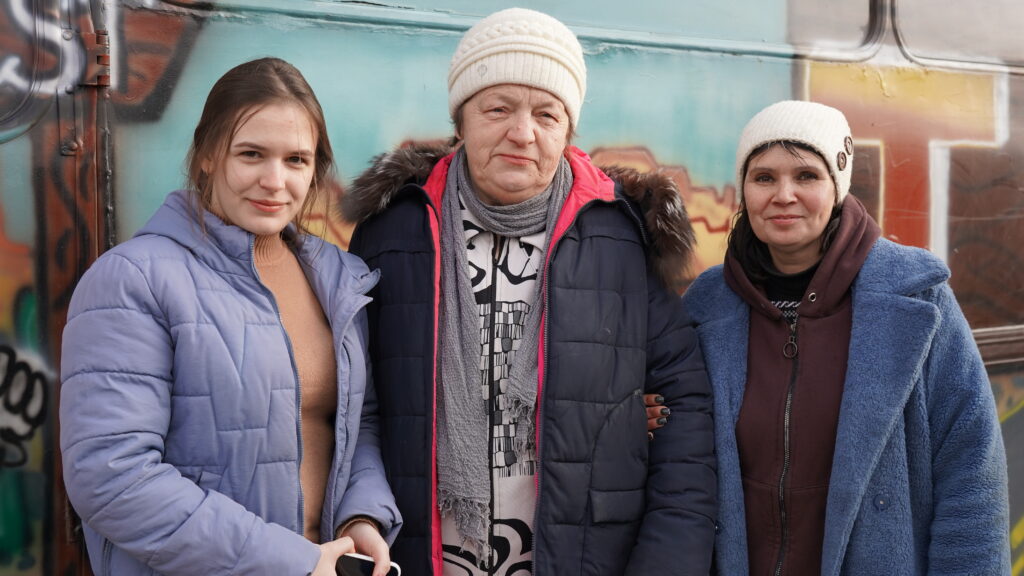

Forty and one year
“Can you imagine I held her in my arms when she was this small?” asks Lydia, pointing to Natasha, who runs a small local restaurant where we have sat down for our meeting.
The restaurant manager is the niece of Lydia, but they drifted apart when the beneficiary of the cash assistance program left for Nikopol. They met by accident in the community centre during a distribution of humanitarian aid.
“We haven’t seen each other for forty years,” smiles Natasha. She is immediately corrected by Lydia jokingly. “Actually, forty years and almost one more, as I could not see when we met again.”
Natasha was radiant with kind-heartedness and the desire to help others. She and her son cooked for Lydia and helped in every possible way since she was not only in need of support but is family. She was taken care of as much as possible, but there were financial limitations to meeting Lydia’s needs.
Although the vision of the thought to be lost aunt of Natasha was obscured in her right eye, it was treatable with medication. Her left eye, however, is in desperate need of a procedure. If it is not done in the upcoming months, she could lose her sight in her left eye for good. Such an operation is an expensive venture, and neither Natasha nor Lydia’s only son, for whom she fears to be drafted, could come up with the required amount. The sixty-five-year-old woman’s meagre pension, equivalent to less than USD 60, is hardly enough for her medication, let alone for an expensive operation.
Not only that, but Natasha has recently become a grandmother.
Many people have fled the war and occupation to Rokytne—many of them from Kherson, a southern port city under Russian rule for eight months. One of them, a young woman, arrived like Lydia: just the clothes she was wearing and a bag of the belongings she could grab before fleeing. However, unlike Lydia, she had nowhere to go. Not until she met Natasha’s son, who volunteered and helped internally displaced people. He asked her mother to take her to their home. One thing followed another, the young people fell in love, and nine months later, in January, the fruit of their love saw the light of day.
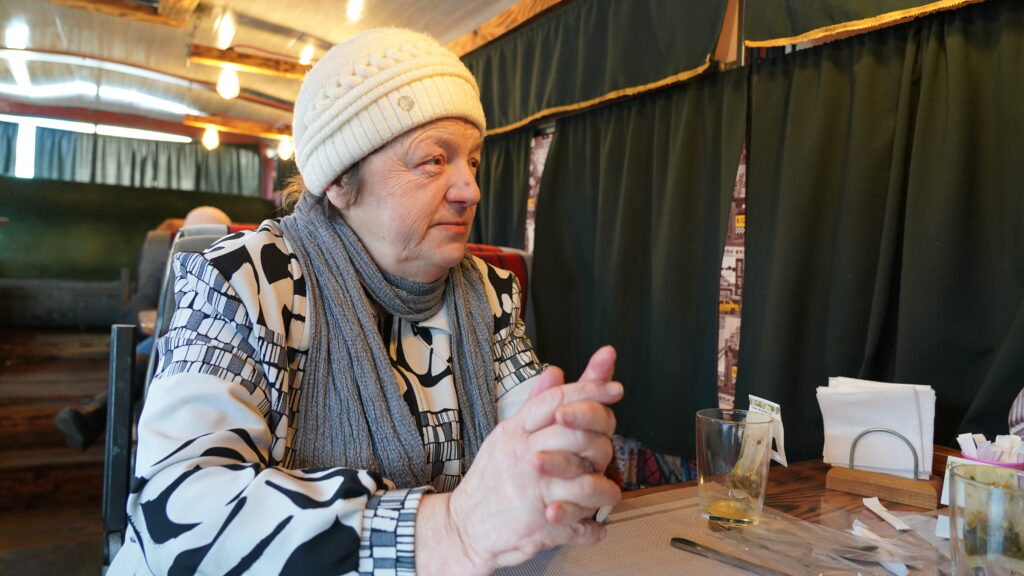

It’s good to see you
“In fact, when the notification came that the money was transferred, I couldn’t even read it. Then when they read it to me, I couldn’t believe it at first. Now keep eating your pancakes until they’re warm,” gives the grandmotherly order Lydia.
She was adamant about preparing lunch to be enjoyed at Natasha’s, a way of expressing her gratitude. “Finally, I can cook again because I can see what I am doing. And finally, I can take care of myself,” she continues, explaining that she used a portion of the cash support provided by HIA to buy the necessary medication needed to regain her sight in her right eye. Moreover, she does not feel like a burden anymore but can be of help to her family.
It means the world to her to be able to see her niece again and to see how her extended family is growing. After all, she continues, family is the only thing that matters.
“Peace, happiness, love. This is my vision for the world.”
Lydia will be having the long-awaited sight-saving operation in the upcoming months, made possible with the support of World Vision.

